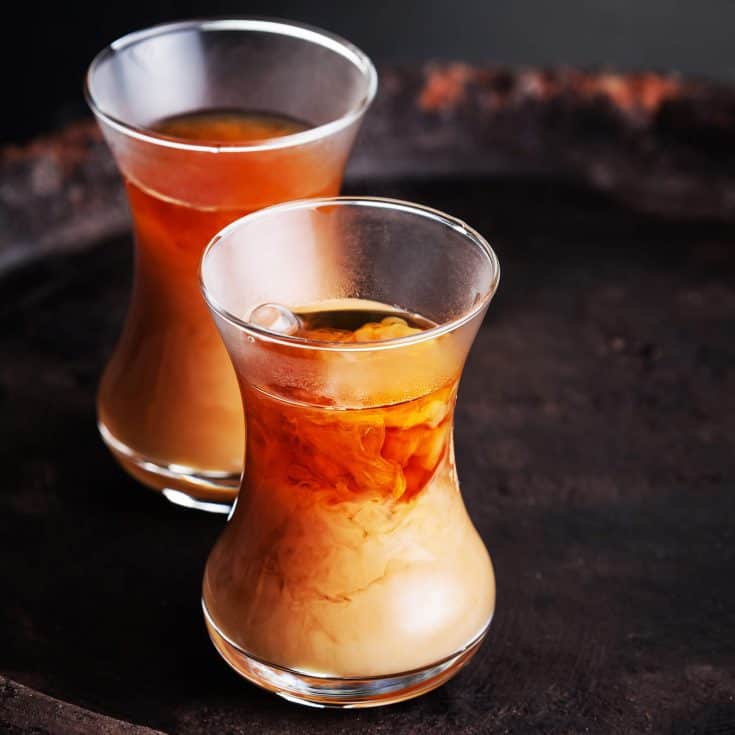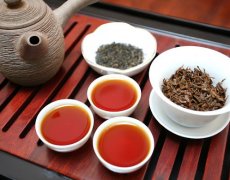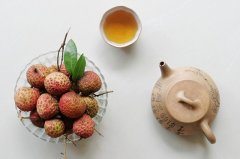What is the difference between black tea and green tea and white tea? what is the correct brewing method of black tea with a fair cup tea set?
Black tea, green tea and white tea
Black tea, green tea and white tea all have the same tea source, that is, tea tree. The processing of tea makes tea have different color, flavor and health care effect. After picking, the processing degree of white tea is the lowest, while that of black tea is the highest. White tea is the closest you can get to picking tea from plants, and its oxidation is very small. At the same time, green tea will be dried and will be fried or steam heated, depending on the variety. Black tea is made from oxidized tea, which means that the leaves are deliberately withered and brown after picking.
The ORAC value (antioxidant content) of brewing black tea was 1128, while that of green tea was slightly higher, 1253. So when it comes to antioxidants, green tea is definitely the best, but it may not be as much as you think.
Black tea, green tea and white tea all have the common benefits of tea, thanks to the polyphenols in tea, which have been scientifically proved to have antioxidant, antiviral, anti-inflammatory, detoxifying and immunostimulatory effects.
Green tea usually contains less caffeine than black tea, while green tea usually has less caffeine than white tea. Studies have shown that the levels of healthy catechins and polyphenols in green tea and white tea are similar.
How to prepare
In order to optimize the benefits of black tea, choose organic and loose leaves. In order to avoid pesticides, it is best to buy organic black. It is also a good idea to buy black tea in bulk instead of tea bags to avoid the chemicals in the bags and get the highest quality tea.
The healthiest black tea recipes seem to include high brewing temperatures and no dairy fat. According to a study published in the International Journal of Food Science and Nutrition (International Journal of Food Sciences and Nutrition), the addition of milk to black tea seems to reduce its antioxidant potential, especially whole milk. In addition, the researchers found that brewing tea at a temperature close to boiling (90 °C or 194 °F) produces the most antioxidants and is therefore good for health.
How to brew loose leaf black tea:
Boil the water in a teapot.
Using the tea set of your choice, add 1 to 2 tablespoons of loose black tea to 8 or 12 ounces of freshly boiled 212 degrees Fahrenheit water (depending on the concentration of the tea you like and the size of your cup).
Set aside three to five minutes for soaking.
Enjoy it with your favorite cup!
Different varieties of black tea are brewed in different ways, so be sure to read the packaging instructions carefully.
Interesting knowledge of black tea
The benefits of black tea are certainly nothing new. Tea has been a medicinal drink for thousands of years. Experts say that around the third century AD, people began to drink tea every day, which was when tea cultivation and processing began. It is said that the earliest published records of the methods of growing, processing and drinking tea were in 350 AD. In the 19th century, tea began to spread from China and Japan to Taiwan, Indonesia, Myanmar and India.
In the mid-19th century, the British introduced tea culture to India and Ceylon (now Sri Lanka). Today, the world's top five tea producers are China (No. 1), India, Kenya, Sri Lanka and Turkey. As the most popular drink in the world after water, it is not surprising that tea is produced in large quantities around the world.
When you make black tea, you should let the taste of the tea seep into the hot water. The longer the time, the stronger the flavor, and vice versa. Scientists say it should take no less than two minutes to brew black tea, but it is clear that as many as 80 per cent of tea drinkers are not even willing to wait such a short time.
In addition, 40% of people drink tea immediately, which means their tea is not very good, it is rich in antioxidants, and the tea brewed is very light. In order to get the maximum benefit of black tea, you must have enough soaking time.

Risks and side effects
Is tea bad for you? Excessive caffeine is an inherent risk of drinking black tea, but if you don't, it's easy to avoid. It is recommended that you drink no more than 5 cups of coffee a day. It is considered unsafe to exceed this number. You may also be psychologically dependent on the caffeine in your tea. For these reasons, the benefits of black tea are definitely the best experience.
If you are pregnant or breastfeeding, drinking no more than three cups of black tea (about 200 milligrams of caffeine) is considered safe. However, exceeding this amount may be unsafe and associated with increased risk of miscarriage, sudden infant death syndrome and other negative effects, including caffeine withdrawal symptoms and low birth weight in newborns.
If you have any persistent health problems or are taking medication, consult your doctor before taking it. Black tea has many possible drug effects.
Black tea reduces the body's absorption of iron. If you don't have iron deficiency, you probably don't have to worry about it. However, if you are worried, it is recommended to drink tea between meals rather than during meals to reduce unnecessary interaction.
Black tea may also react with supplements, including, but not limited to, bitter orange, cordyceps, calcium, magnesium, caffeinated supplements and herbs, salvia miltiorrhiza, creatine, echinacea, folic acid, melatonin and red clover.
Maybe he has a food allergy to black tea. The test can determine if you have. If you have any signs of food allergies, especially severe ones, please stop drinking this tea.
Important Notice :
前街咖啡 FrontStreet Coffee has moved to new addredd:
FrontStreet Coffee Address: 315,Donghua East Road,GuangZhou
Tel:020 38364473
- Prev

Can black tea kill Helicobacter pylori? The efficacy and function of black tea taboos and unsuitable people
Health benefits 1. Many studies have shown that black tea has a positive effect on heart health. A study published in 2017 examined the effects of tea drinking on the risk of ischemic heart disease. The study surveyed more than 350000 men and women aged between 30 and 79 in 10 regions of China. When the researchers followed up about seven years later, they found
- Next

Where is litchi black tea produced? can I make milk tea? Why does litchi black tea have litchi flavor?
Litchi black tea is a special scented tea from China, mainly from Guangdong and Guangxi. This is a kind of black tea with a real litchi flavor, which is obtained by baking litchi with tea leaves. Litchi is a small fruit with white pulp and pink peel picked from litchi trees. Litchi is easy to peel and can be eaten raw. It is native to Guangdong Province and is also found in other Asian countries.
Related
- The ceremony is full! Starbucks starts to cut the ribbon at a complimentary coffee station?!
- A whole Michelin meal?! Lucky launches the new "Small Butter Apple Crispy Latte"
- Three tips for adjusting espresso on rainy days! Quickly find the right water temperature, powder, and grinding ratio for espresso!
- How much hot water does it take to brew hanging ear coffee? How does it taste best? Can hot water from the water dispenser be used to make ear drip coffee?
- What grade does Jamaica Blue Mountain No. 1 coffee belong to and how to drink it better? What is the highest grade of Blue Mountain coffee for coffee aristocrats?
- What are the flavor characteristics of the world-famous coffee Blue Mountain No. 1 Golden Mantelin? What are the characteristics of deep-roasted bitter coffee?
- Can I make coffee a second time in an Italian hand-brewed mocha pot? Why can't coffee be brewed several times like tea leaves?
- Hand-brewed coffee flows with a knife and a tornado. How to brew it? What is the proportion of grinding water and water temperature divided into?
- What is the difference between Indonesian Sumatra Mantinin coffee and gold Mantinin? How to distinguish between real and fake golden Mantelin coffee?
- What does bypass mean in coffee? Why can hand-brewed coffee and water make it better?

